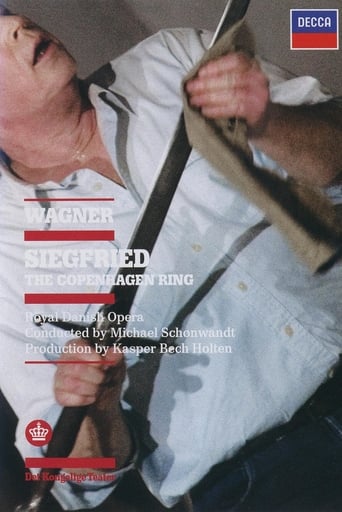
31 May 2006

Siegfried
Day 2 of the Ring Cycle. DVD release June 2009.
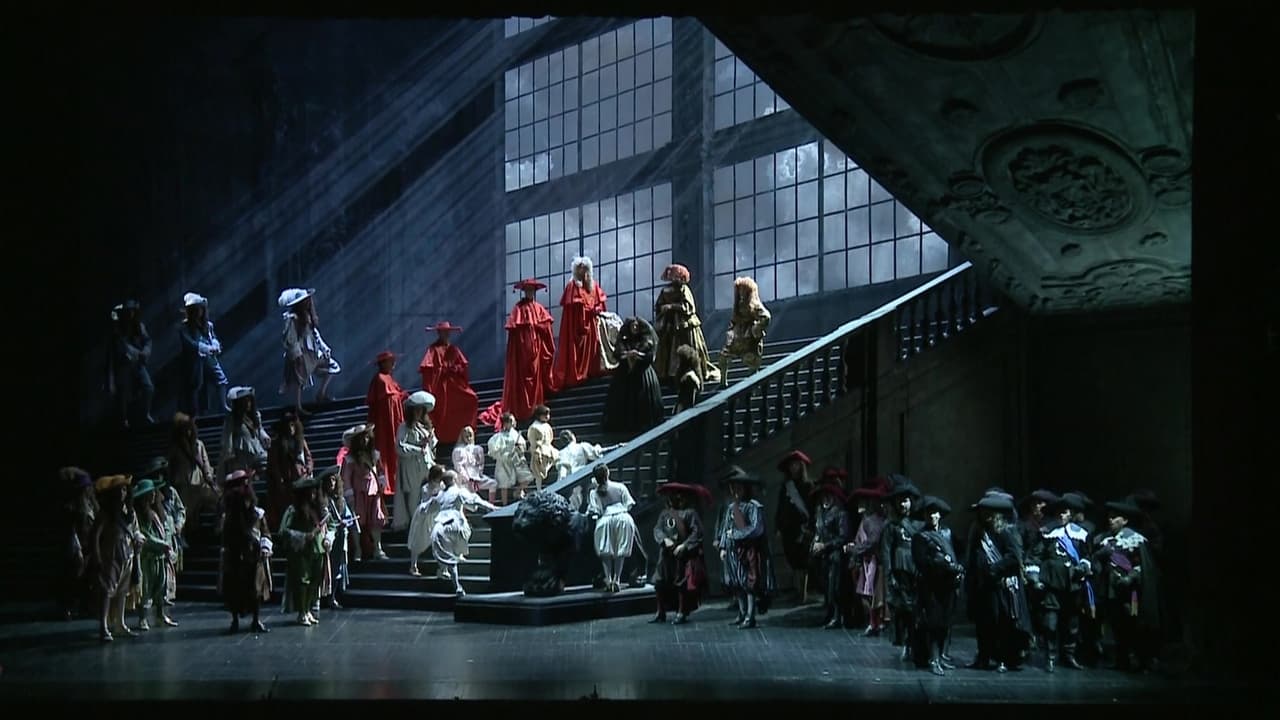
Part of Tutto Verdi series - Un ballo in maschera (2011) Parma. Based on a Scribe libretto and begun as 'Gustavo III' set in Sweden, it became 'Una vendetta in dominò' set in Germany, and finally 'Un ballo', set not in Sweden but in Boston, Massachusetts during the colonial era. These changes were caused by a combination of censorship regulations in both Naples and Rome, as well as by the political situation in France in January 1858.

Riccardo, Earl of Warwick and governor of Boston

Renato
Amelia
Oscar

Ulrica

31 May 2006

Day 2 of the Ring Cycle. DVD release June 2009.
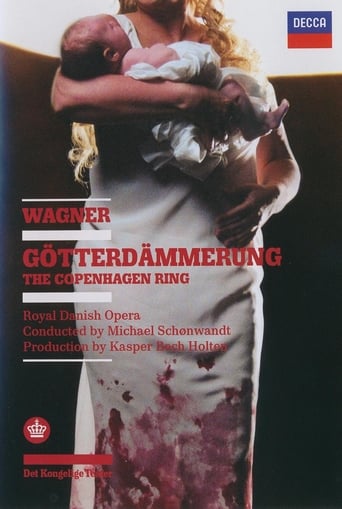
31 May 2006

Day 3 of the Ring Cycle. DVD release June 2009.
28 May 1994
Live from Glyndebourne 1994. The first production to be filmed Live in Glyndebourne´s new opera house May 1994. The Marriage of Figaro is a continuation of the plot of The Barber of Seville several years later, and recounts a single “day of madness” in the palace of the Count Almaviva near Seville, Spain. Rosina is now the Countess; Dr. Bartolo is seeking revenge against Figaro for thwarting his plans to marry Rosina himself; and Count Almaviva has degenerated from the romantic youth of Barber into a scheming, bullying, skirt-chasing baritone. This follows the Count trying to obtain favours from Susanna, Figaro’s bride to be, under the nose of the Countess.
02 Jun 1992
Recorded live at the Royal Opera House, Covent Garden, London on 2 June 1992.
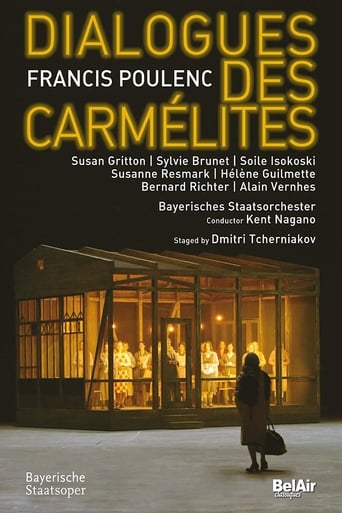
31 Mar 2010

The first ever performances in Munich, this production was entrusted to Dmitri Tcherniakov, whose worldwide reputation is underpinned by productions like Eugene Onegin and Macbeth at the Paris Opera and Don Giovanni at Aix-en- Provence. The superb international cast includes a fine Blanche de la Force in Susan Gritton and an excellent Madame de Croissy by Sylvie Brunet, who was favourably compared to Rita Gorr in the press.
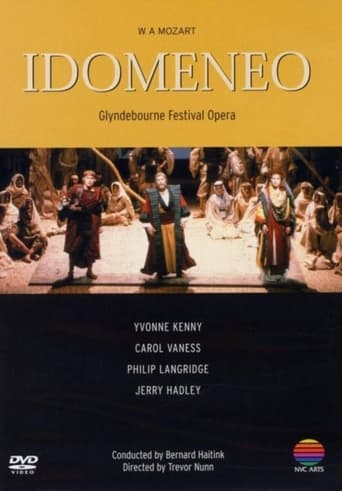
20 Aug 1983

Live from Glyndebourne 1983
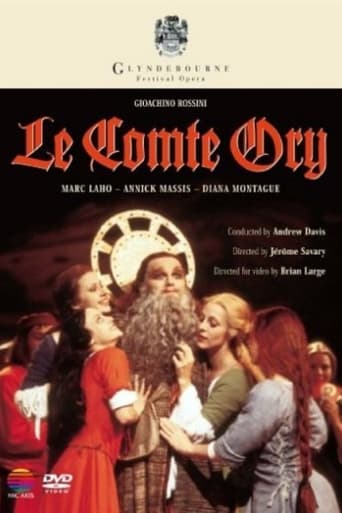
20 Jul 1997

Glyndebourne's intimate opera house provides the perfect setting for Rossini's third French opera, a sparkling medieval comedy of lust and chastity.
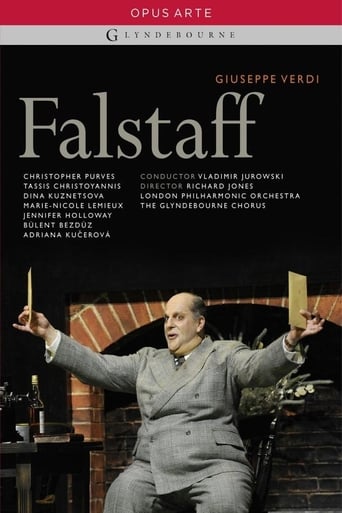
21 May 2009

Live from Glyndebourne 2009
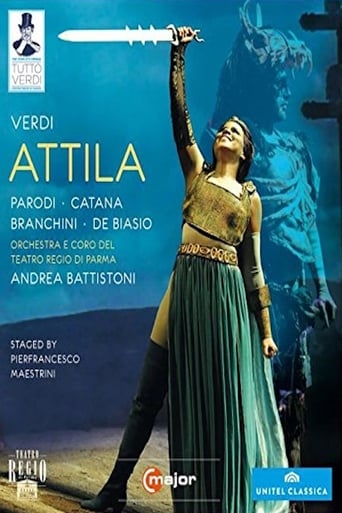
21 Oct 2010

Part of Tutto Verdi series - Attila (2010) Parma. 'Attila' is an opera in a prologue and three acts by Giuseppe Verdi to an Italian libretto by Temistocle Solera, based on the 1809 play 'Attila, König der Hunnen' ('Attila, King of the Huns') by Zacharias Werner. The opera received its first performance at La Fenice in Venice on 17 March 1846.
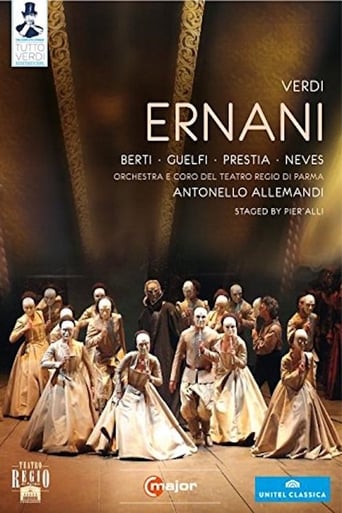
03 May 2005

Part of Tutto Verdi series - Ernani (2005) Parma. 'Ernani' is an operatic dramma lirico in four acts by Giuseppe Verdi to an Italian libretto by Francesco Maria Piave, based on the play 'Hernani' by Victor Hugo. Ernani was first performed on 9 March 1844 at the Teatro La Fenice in Venice.
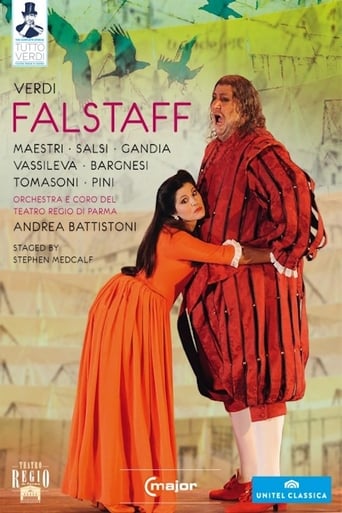
10 Oct 2011

Part of Tutto Verdi series - Falstaff (2011) Parma. 'Falstaff' is an opera in three acts by the Italian composer Giuseppe Verdi (1813–1901). The libretto was adapted by Arrigo Boito from Shakespeare's 'The Merry Wives of Windsor' and scenes from 'Henry IV, parts 1 and 2'. The work premiered on 9 February 1893 at La Scala, Milan
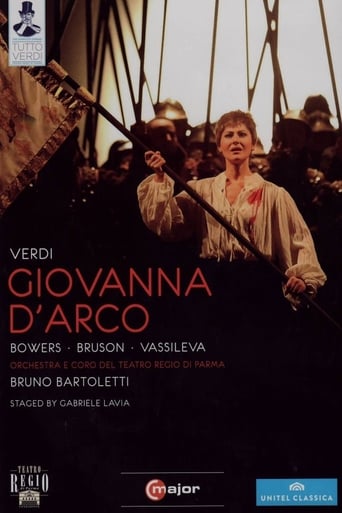
07 Oct 2008

This work predates Thchaikowsly’s for almost 4 years, and it is base don the Schiller play I have previously criticized for its lack of historical accuracy. It is essentially focused on three major voices, soprano, tenor and baritone, with a basso to spice it up. New Yorker Evan Bowers may not be a matinee idol, but he sails into the role with a bright, focused lyrico spinto tenor voice. Renato Bruson was 72 years old in 2008, when he took this role (first sung by him in1989) and it shows, with quite a wobble on many passages; yet his voice commands the stage and rises majestically in the ensembles. And then, Bulgarian Svetla Vassileva, who is not burned at the stake, as in “Maid”, but dies heroically in battle.
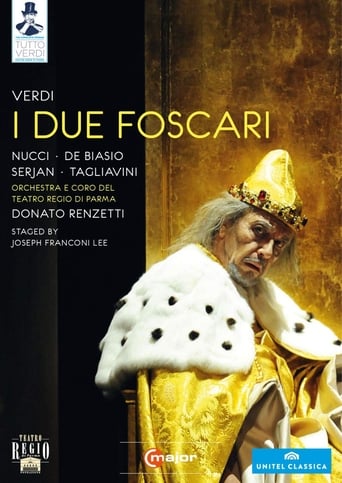
13 Nov 2013

Part of Tutto Verdi series - I due Foscari (2009) Parma
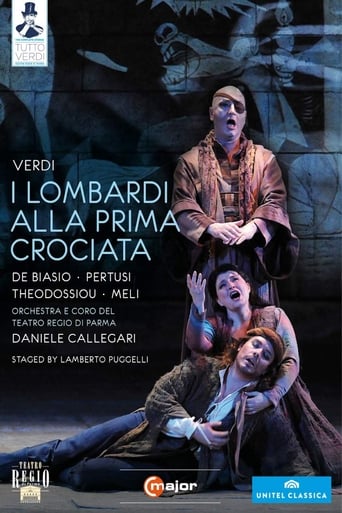
15 Jan 2009

I Lombardi alla prima crociata (The Lombards on the First Crusade) was Verdi’s fourth opera and received its first performance at La Scala, Milan, in February 1843. The grandiloquent subject matter is fleshed-out with broad-brushed musical and dramatic effects and lavish choral scenes created a correspondingly impressive impact. A great success in Milan, it spread to the rest of Europe within a matter of only a few years.
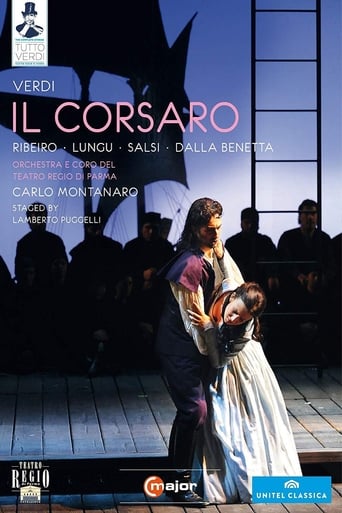
19 Oct 2008

The caption on the DVD sleeve reads “This Is how Verdi should be played!” and I could not agree more. The trio of principals: Ribeiro, Lungu, and Dalla Benetta , offer youthful exhuberance and intensity, good looks and glorious voices. The rest of the cast is equally good. Superb conductor, traditional production, great staging. Anf of course, Verdi’s exquisite music. It has renovated my faith in the totality of the Verdi canon, not only its most performed titles.
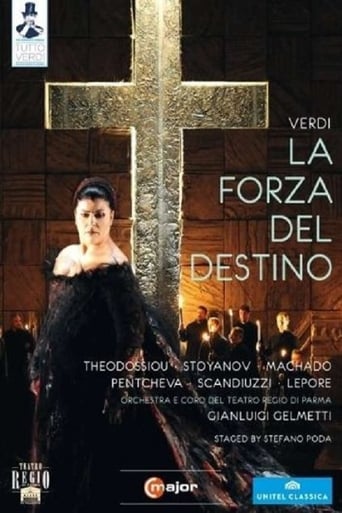
25 Apr 2013

Donna Leonora, daughter of the Marquis of Calatrava, is preparing to flee secretly with her lover Don Alvaro (son of the Viceroy of Mexico and an Inca princess). The Marquis enters unexpectedly. Alvaro hesitates to raise his weapon against his lover's father and throws his pistol. As he falls, the pistol fires and the Marquis is mortally wounded. As he dies, he curses his daughter. Don Carlo di Vargas, Leonora's brother, decides to avenge the death of his sister and her fiancé. In the turmoil of the chase, Leonora and Alvaro lose each other... Live recording made on 2 and 5 February 2011 at the Teatro Regio in Parma. The libretto by Francesco Piave is based on a play by Ángel Saavedra (1791 - 1865), Duke of Rivas, ‘Don Álvaro o la Fuerza del sino’ (1835). The plot of this romantic drama is based entirely on coincidence, chance and unexpected encounters. In a word, fate.
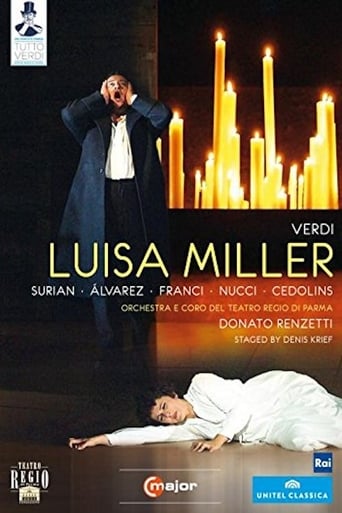
22 Oct 2007

As the release of the ‘Tutto Verdi’ series from the Teatro Regio progresses, one has begun to have fears that the later Verdi operas will fail to measure up to the standards that have been set on DVD by productions from international houses across the globe. The issues of the early and middle period Verdi works have been welcome, because these pieces are so rarely encountered in the opera house; but with Macbeth and Luisa Miller we are coming to operas that have been performed by major artists in major productions with superb orchestras and conductors.
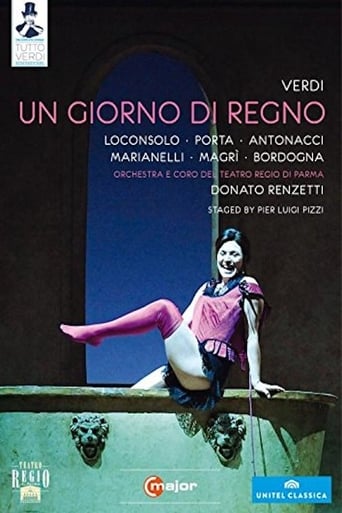
31 Jan 2010

Part of Tutto Verdi series - Un giorno di regno (2010) Parma. 'Un giorno di regno, ossia il finto Stanislao' ('A One-Day Reign, or The Pretend Stanislaus', but often translated into English as 'King for a Day') is an operatic melodramma giocoso in two acts by Giuseppe Verdi to an Italian libretto written in 1818 by Felice Romani. Originally written for the Bohemian composer Adalbert Gyrowetz, the libretto was based on the play 'Le faux Stanislas' written by the Frenchman Alexandre Vincent Pineu-Duval in 1808.
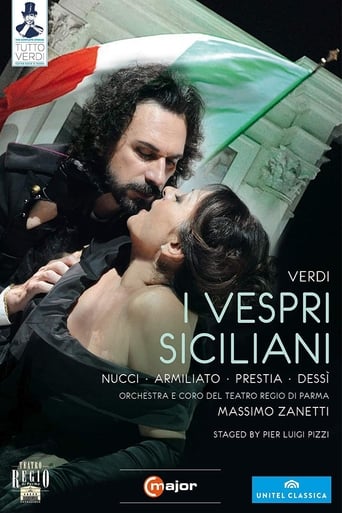
20 Oct 2010

Part of Tutto Verdi series 'I vespri siciliani' ('The Sicilian Vespers') is a five-act Italian opera originally written in French for the Paris Opéra and translated into Italian shortly after its premiere in June 1855. Under its original title, 'Les vêpres siciliennes', the libretto was prepared by Eugène Scribe and Charles Duveyrier from their work 'Le duc d'Albe', which was written in 1838 and offered to Halévy and Donizetti before Verdi agreed to set it to music in 1854. The story is loosely based on a historical event, the Sicilian Vespers of 1282, using material drawn from the medieval Sicilian tract 'Lu rebellamentu di Sichilia'.
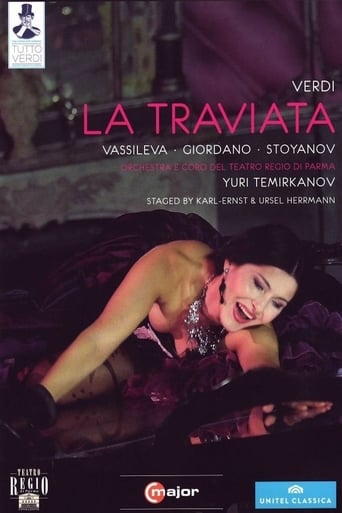
09 Oct 2007

Part of Tutto Verdi series - La Traviata (2007) Parma. 'La traviata' ('The Fallen Woman') is an opera in three acts by Giuseppe Verdi set to an Italian libretto by Francesco Maria Piave. It is based on 'La dame aux Camélias' (1852), a play adapted from the novel by Alexandre Dumas, fils. The opera was originally titled 'Violetta', after the main character. It was first performed on 6 March 1853 at the La Fenice opera house in Venice. Piave and Verdi wanted to follow Dumas in giving the opera a contemporary setting, but the authorities at La Fenice insisted that it be set in the past, "c. 1700". It was not until the 1880s that the composer and librettist's original wishes were carried out and "realistic" productions were staged.